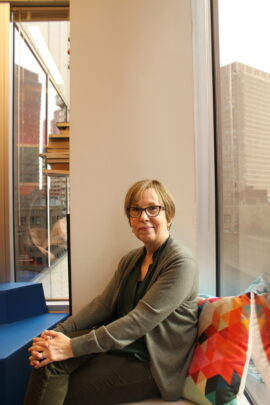Author

Blogs
Article & Observations About Diverse Teams Working Better Together
The Importance of Rethinking and Taking Chances - Part Two
I just completed week three of my mentorship with TJX, thanks to the opportunity offered to me by being a Women's Business Enterprise National Council (WBENC) member. As a reminder, my mentors and I have been discussing the Strengths, Weaknesses, Opportunities, and Threats (SWOT) for Iterators, assessing these four aspects of the business. We are still working through our Weaknesses from the SWOT document, and a mentor suggests we: Change Customers' Point of View.
With that mindset, we then identified weaknesses, or objections potential customers express that can be turned into strengths or opportunities. For example, one we sometimes hear is an organization can use an offshore software testing company. This is true; however, we have an opportunity there to emphasize the benefits of using a company in the same time zone and without any language barriers that could lead to miscommunication—both of which are also strengths. Another is a lack of awareness of Iterators, the importance of software testing, or that developers are not the right people to test their product. In this case, the opportunity exists to write and publish case studies. Third, we can limit delays caused by development and mitigate losses, which is another strength to highlight. Finally, some clients cannot provide recommendations on Clutch for example, https://clutch.co/profile/iter... and word of mouth, or written recommendations can lead to growth. Government entities usually abstain from leaving a "recommendation" but do write about our work https://www.boston.gov/news/bu..., which leads to increased recognition.

Going through this exercise and having direction helps me better understand the process and the end goal. But I am more of an introvert, a bit shy, I confess with complete honesty. I would not ask a current client if they could recommend us to their counterpart at a similar company. "What do you think will happen?" one of my mentors asks. I respond that I would be fearful the customer would get annoyed and stop using us. Then my mentor poses another question: "Do you think they really will stop using you because you ask for a referral?" I respond and say no, but that's my fear and shows the level of my unease. Then my mentor shares a story: They were out of college and working their first job, a job they did not expect to have and commission only, selling a product door to door. As a condition of employment, you had to ask for referrals from every customer you had. My mentor admits he was uncomfortable with this requirement, fearing they would cancel the order they just placed. I asked what happened and am told: "I asked everyone for a referral—some would not give a referral, others did provide a referral, and no one canceled their order," and adds that asking for these referrals positively impacted his business.
There can be a couple of definitions for the word vulnerable. I'm not even sure it's the right word to use. Still, I so appreciated hearing about my mentor's vulnerability and that they were capable of feeling as uncertain as I feel. I knew that if my mentor could share this, I could ask for a referral, and I did so. I have not gotten a response, but I'm not fearful any longer. Since reading our story in The Boston Globe, our client has been a great customer, has written a testimonial about us that lives on our website, https://Iteratorstesting.com, and did so, not at my request, but because of the work we provide every week, 52 weeks a year, for the last four years. That day, I stopped worrying about something that hadn't happened yet, and it's an excellent lesson to learn and one I will not forget anytime soon.
I learned something else valuable that day. As the weeks go by, I realize that this is not just my mentorship—it's our mentorship. My mentors did not know anything about software testing or the struggles that individuals with disabilities encounter while attempting to access their Information Communication Technology, which is usually not in an accessible format and lacks ADA compliance. And maybe tomorrow or sometime down the road, women will be recognized for their significant contributions in technology and all other fields they choose to work in, with set-asides being unnecessary to level the playing field for anyone. Hopefully, my mentors will positively remember our mentorship, just as I will.
Valuable Resources:
About the Author
Jill Willcox has worked on accessibility issues for most of her professional career. Iterators is an inclusive women-owned small business (WOSB) certified by the Small Business Administration and WBENC. We provide software testing services for websites, mobile apps, enterprise software, and PDF remediation services, rendering PDFs ADA compliant.

